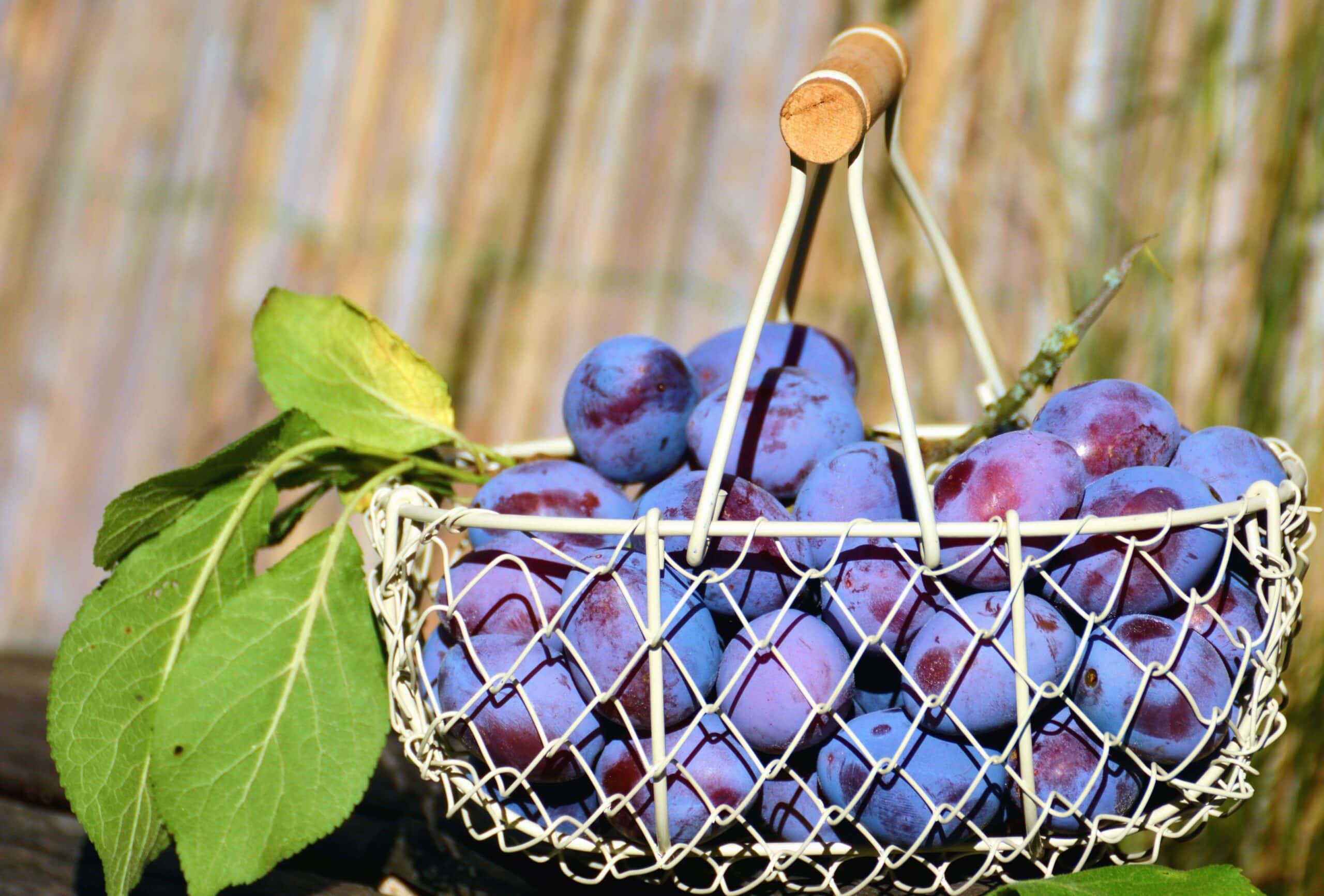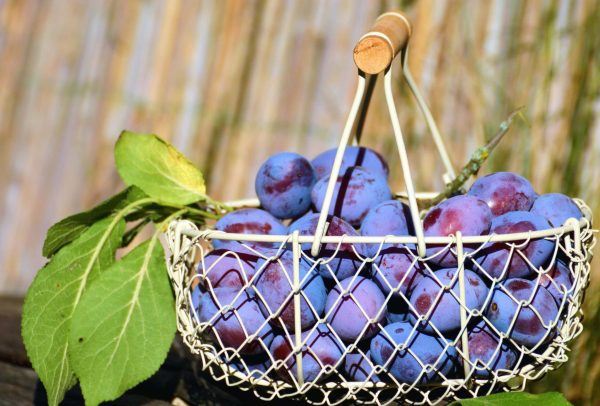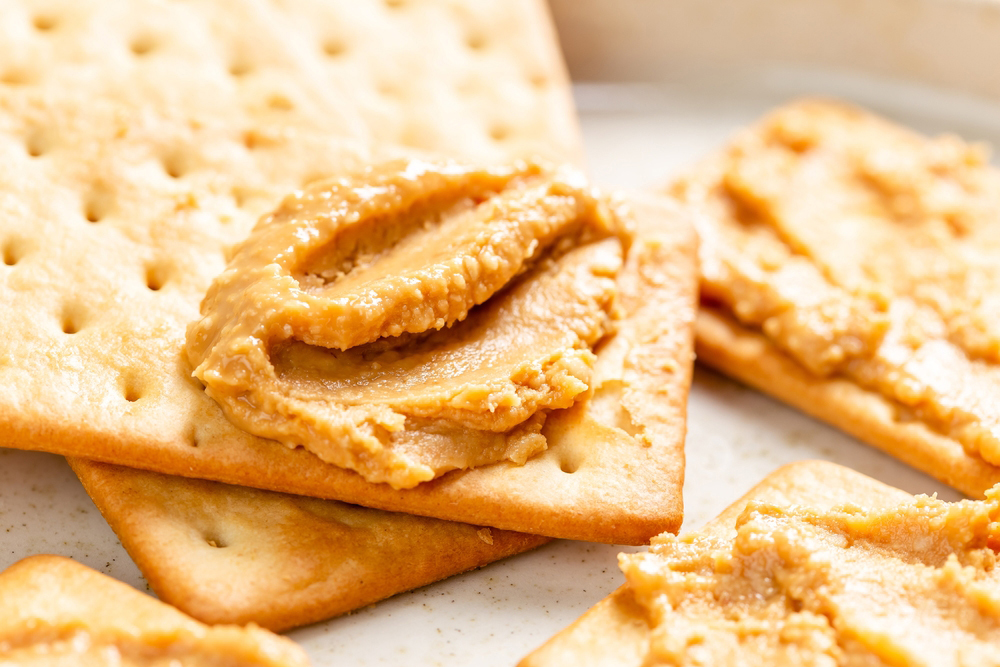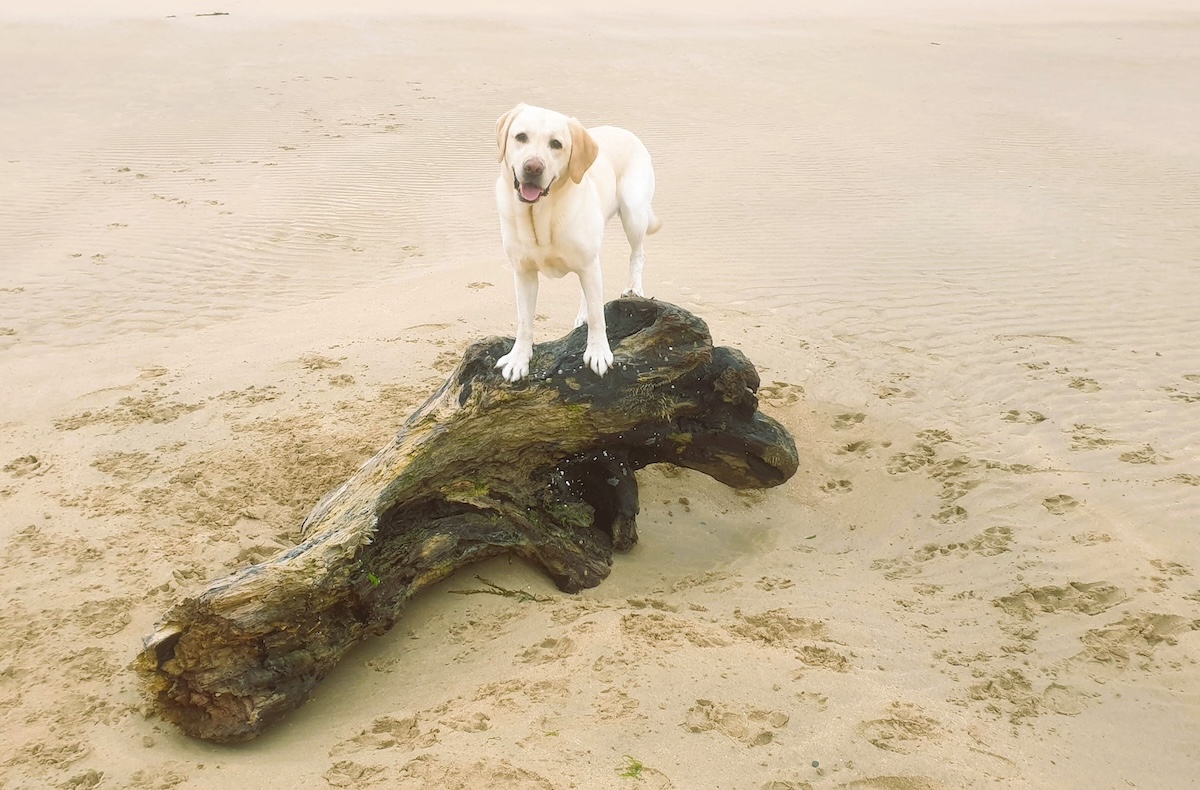Click to Skip Ahead
While choosing and preparing fruits and vegetables for your canine friend, it’s essential to be mindful of specific options that may not suit them. For example, you might be curious whether plums are safe for dogs.
While dogs can eat the flesh of plums safely, it’s not recommended as a regular treat. It’s important to know why dogs shouldn’t eat plums regularly and to choose suitable food and treats instead. Since some human foods can be dangerous for dogs, it’s always best to check with your veterinarian before adding anything new to their diet. Read on below to find out more about feeding plums to your dog.

Are Plums Okay for Dogs?
If you’re a dog owner, you might be curious whether plums are safe for your furry friend to eat. The good news is that the flesh can be fine for your dog in moderation. However, you should ensure that you only give your canine the juicy flesh of the plum, not the pit, which can be dangerous. While your dog will be fine if they ate a small amount of plum flesh, it’s best to leave this fruit out of their diet.
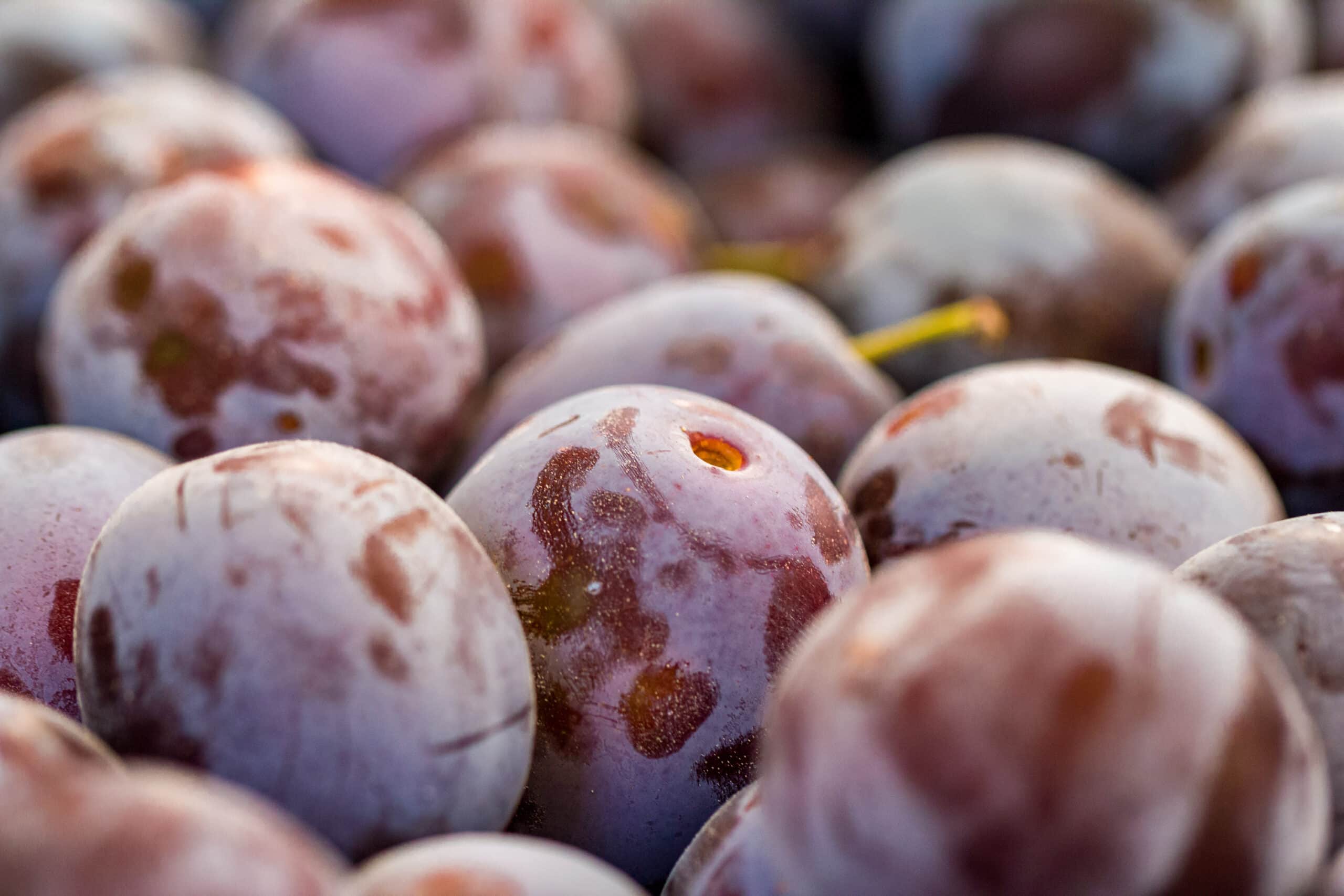
When Are Plums Bad for Dogs?
While the flesh is safe for dogs to eat in moderation, plums don’t offer many health benefits that your pooch isn’t already getting from their regular diet. On the other hand, the plum’s stems, pits, and leaves contain small amounts of cyanide, which could harm your pup if they ingest it. The pit can also cause severe blockages in their digestive system if they bite or swallow it whole. So, it’s best to stick to dog-friendly treats and snacks.
If you’re wondering whether giving your dog the flesh of a plum is safe because it’s not toxic, it’s crucial to know that plums contain high sugar levels. This may pose a risk to dogs, particularly those with specific medical conditions. As a result, it’s advisable to avoid feeding plums to your pooch.
Canned plums and plum juice often contain added sugar. While offering them as an alternative to fresh plums may be tempting, it’s best to steer clear of these options altogether as they’re so high in sugar. Exploring other, more nutritious choices is recommended to ensure your canine’s snack time is healthy.
What Should You Do If Your Dog Eats a Plum Pit?
Is it possible for dogs to consume plums without experiencing harmful effects, as long as they have not ingested any of the toxic components of the fruit? If your beloved pet has just eaten the flesh of the plum and not the pit, stem, or leaves, they might only experience mild digestive discomfort due to the high levels of fiber and sugar. If they overeat, preparing for potential stomach issues in the hours or days following the incident is advisable.
The pit or any other fruit part may cause cyanide poisoning symptoms in dogs. If you suspect your furry friend has ingested any part of a plum other than the soft flesh, it’s crucial to seek veterinary assistance or contact a poison helpline promptly. The ASPCA advises monitoring for signs of cyanide poisoning, such as red gums, labored breathing, and dilated pupils.
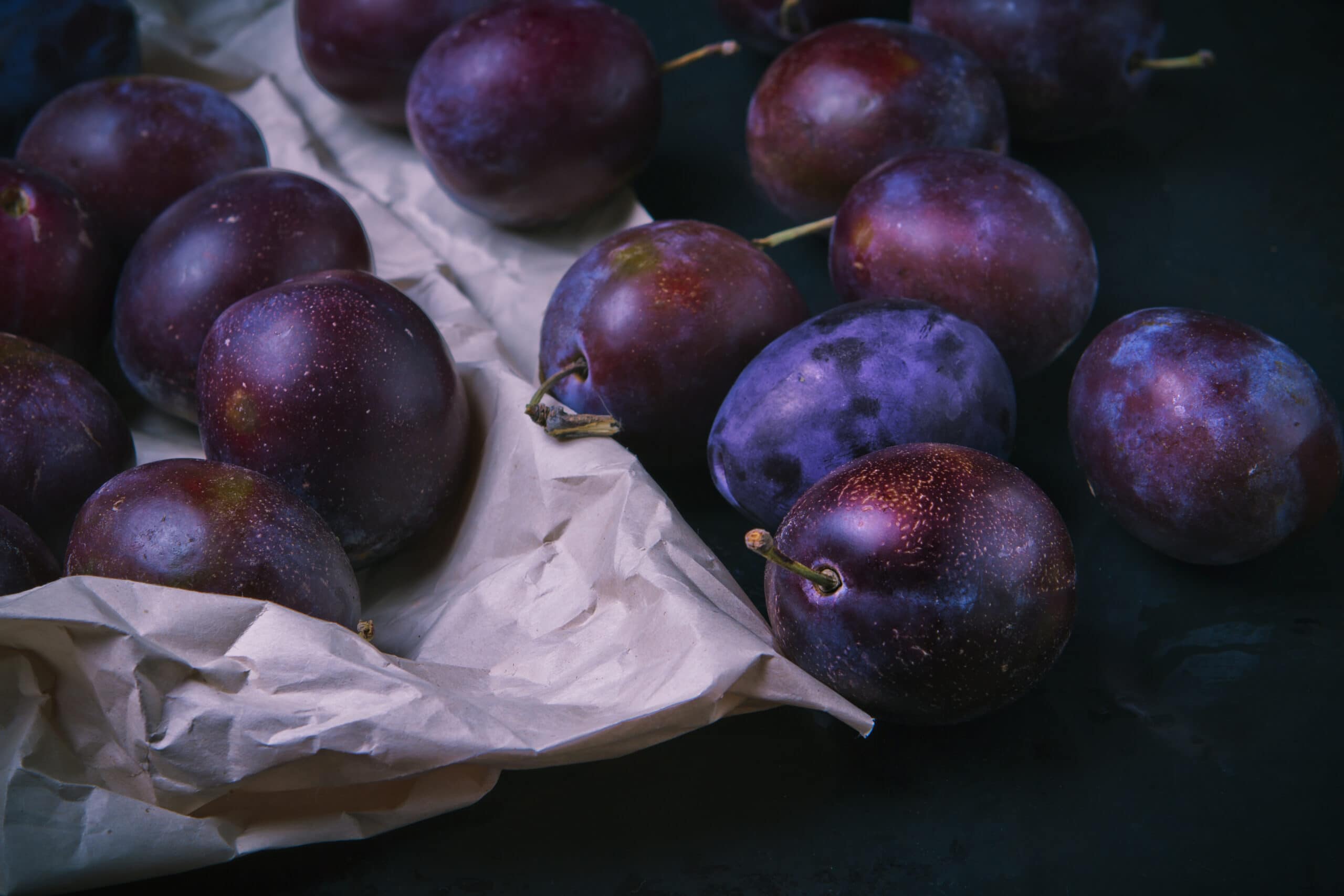
What Fruits Can Dogs Eat?
- Blackberries
- Pineapple without the skin and leaves
- Apples, without the seeds, core, and stem
- Peeled and seeded mango
- Bananas peeled
- Blueberries
- Oranges, without the peel
- Cantaloupe, minus the rind
- Peeled tangerines
- Watermelon, without the rind and seeds
- Cranberries
When it comes to feeding dogs fruits and vegetables, it’s vital to be cautious and not overdo it, even if it’s healthy food because it can cause stomach issues and disrupt their nutrition. It’s wise to keep their diet balanced and use fresh fruits and veggies as occasional treats to make sure your dog always benefits from what they eat. Additionally, treats should make up at most 10% of their daily food intake.
Conclusion
While plum flesh is safe in general for dogs, it’s high in sugar, making it less than ideal as a snack. If your pet has only had a few slices of it, there’s no need to worry. However, it’s a different story if they have eaten an entire plum, including the pit. Pits are problematic, as they have a sharp end that can cause digestive issues. Additionally, the pit contains cyanide, which can be dangerous if your dog has bitten into it.
Some human foods can cause adverse reactions in our canines. Therefore, it’s always best to consult your veterinarian before introducing new foods to your pet’s diet.
Featured Image Credit: JumpStory

